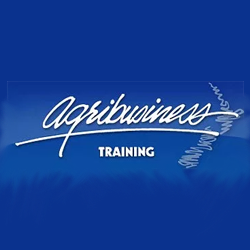
Using Tutor Hubs as a Spotlight on Quality and Consistency
Status
Completed: 6 November 2009
Project Details
A project, undertaken by Agribusiness Training Ltd, to develop a good practice guide describing Tutor Hubs, where staff across the organisation meet to focus on a single area of training to improve quality and consistency.
Aims:
The main aims of the project were to:
- discuss and review the theory, practical, administrative, and compliance aspects of training by considering course composition, delivery practices, assessments, and marking schedules
- use a cross-organisation approach to improve quality and consistency using the experience and expertise of the different members, maximising the benefits of collaboration
- ensure best practice with all participants having input into improvements and review recommendations
- produce training resources, practical activities, and assessments that meet the unit standard descriptors while using wording and style accessible to students
- improve the learning experience for students and ensure the skills and knowledge they gain are equipping them appropriately for the workplace.
Methodology:
The project used a case study methodology.
Team

Charlotte Heather
Agribusiness Training LtdStatus
Funding
$3,000.00 (excl GST)
Key Findings
The key findings from the project included:
- The ideal Tutor Hub size for group dynamics to be most effective is 8–10 people, which may limit the numbers attending to two tutors per branch. The group needs to be large enough so diverse tutor experience and a range of sites are represented, but small enough so everyone can have input. This maximises the possible benefits of cross-fertilisation from collective expertise across the organisation.
- The Tutor Hub operates in a non-threatening environment so tutors actively participate and collaborate; as a result, they feel their expertise is recognised and valued as a resource. Some of the ways this environment is created are: varying working group sizes so tutors get to work with different people and find it easier to have input; actively ensuring all have a chance to speak and not just the most confident people; and using lead tutors to run some sessions.
- Tutor Hubs also deliberately model good tutoring practices, e.g., varying the style and type of activity so they are not all talking based; demonstrating techniques that stop people talking over each other while allowing all to have a say; nipping inappropriate comments in the bud; pulling discussion back to keep it on task; displaying the day’s programme so participants know when breaks occur; using a whiteboard Parking Space for ideas to follow up later; intermingling more and less interesting activities where possible; adhering to break and finishing times.
- Any new delivery is priority for a Tutor Hub, so standards are set from the outset.
- Be aware of the need to take frequent breaks. Have a team building-focused activity after lunch if time allows, as that is when participants can feel sluggish.
Key Recommendations
The key benefits of the Tutor Hubs included:
Benefits to Agribusiness Training Ltd
Relationships | Relationships between tutors and Agribusiness Training’s Academic Team are strengthened, as understanding of what the other does improves.
Consistency and quality of training | The consistency and quality of training offered to students across the country is improved.
Approach ensures “buy in” | The Tutor Hub approach ensures “buy in” of the outcomes from tutors, as it captures their expertise to develop and improve resources and practices. The positive impact of this is improved teaching and delivery.
Relevant and current course content | The close connections of tutors with industry’s best practices help ensure course content is relevant and current, as this knowledge is being captured.
Moderation process | Tutors gain an understanding of the moderation process, why standards need to be set and moderated, and the amount of leeway possible in accepting alternative answers or different ways of assessing something. Tutors are more accepting of moderation, and more confident in their part.
Cohesiveness and morale | Cohesiveness and morale across Agribusiness Training is strengthened as tutors realise there are others with similar backgrounds and experiences getting similar feedback from students. Tutor Hubs establish networks between tutors, meaning they have others with whom to discuss aspects of training.
Adapt model for other purposes | The successful Tutor Hub model can be adapted for other purposes like training new tutors or preparing to pilot new initiatives.
Benefits to Tutors
Tutor networks | Tutors develop networks with others tutoring in the same subject, as they are often the only ones in their branch. These networks develop through the Tutor Hub activities, and also through socialising over meals. Tutors value the collegial support these networks bring – they have others for advice, ideas, support, and are less likely to feel isolated or stressed.
Non-threatening environment | Tutors are often not from an educational background, and so Tutor Hubs are a non-threatening way for them to improve their training skills. These develop as tutors share ideas, look at ways of improving delivery, and set standards of training together.
Benefits to Learners
Quality improvement | Tutor Hubs improve the quality of resources, activities, delivery, and assessment methods, which leads to better learning outcomes. The calibre of training improves as tutors are able to bounce ideas off each other, learn from others’ experience, and utilise the networks they establish to problem solve issues that arise.
Literacy and numeracy | Tutors are better equipped in how to approach students with literacy or numeracy needs.
Training stays current | Cross-fertilisation across the organisation from the differing industry experience of the participants ensures training remains current.
Training issues addressed | Training issues identified through student or tutor feedback are discussed and addressed in a Tutor Hub, e.g., assessment issues arose in the 4WD Driving course and were resolved this way.
Quality and consistency of training | Tutor Hubs have been a key factor in creating a company culture of quality and consistency of training. This has improved the learning experience for students and ensures the skills and knowledge they gain are equipping them appropriately for the workplace.
A good practice publication prepared by Charlotte Heather.
(PDF, 195 KB, 7-pages).
- 5 November 2009